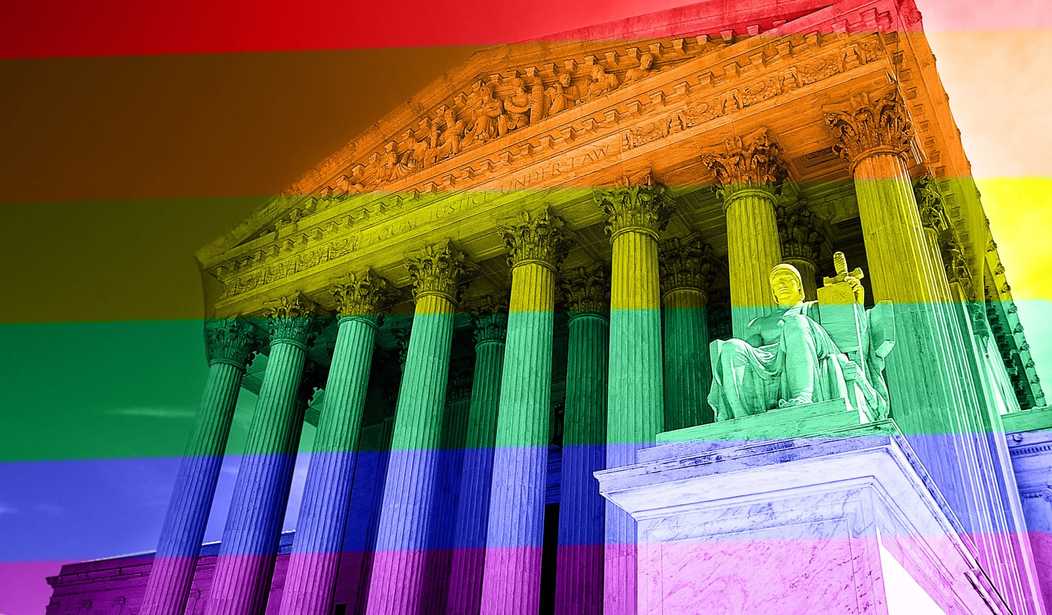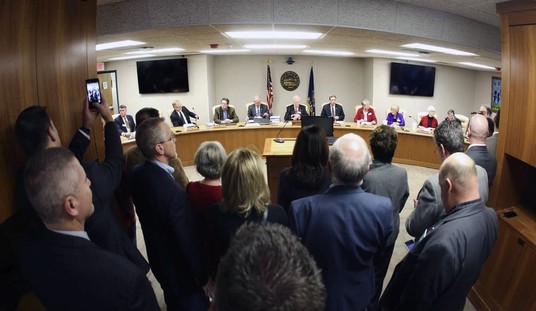This past Thursday, the 5th Circuit Court of Appeals struck down a lawsuit and temporary stay against a Mississippi law protecting those with traditional religious beliefs about marriage, sexuality, and gender from government discrimination. The court’s ruling allowed the law to go into effect, but it is likely that LGBT groups will continue to oppose it.
“I’m afraid this is going to be yet another excuse to hate. My wedding is July 4th and it throws it all into question,” Renick Taylor, a homosexual man who sued the state over the bill, said on ABC’s “Good Morning America” Friday.
Correspondent David Wright backed up his comments, saying that the “so-called religious objections law… would allow people in that state to deny services to same-sex couples on religious grounds.” He further added that “opponents say the Mississippi law endorses bigotry, pure and simple.”
In the decision, the circuit court overruled a previous judgment from a district court judge who attacked the Mississippi law as unconstitutional, claiming it violated the Establishment Clause and the Equal Protection Clause. Rather than addressing these arguments, the court pointed out that the plaintiffs in the lawsuit lacked standing because they “have not clearly shown injury-in-fact.”
The bill is specific and limited. It does not render gay marriage illegal in Mississippi, or say that businesses can refuse any services to LGBT people. It also does not “establish a religion,” as some plaintiffs claimed.
H.B. 1523, or the “Protecting Freedom of Conscience from Government Discrimination Act,” outlines three specific beliefs that will be protected by law and are widespread beliefs in America and in Mississippi especially. The three beliefs are: “marriage is or should be recognized as the union of one man and one woman,” “sexual relations are properly reserved to such a marriage,” and “male (man) or female (woman) refer to an individual’s immutable biological sex as objectively determined by anatomy and genetics at time of birth.”
The law prohibits the state of Mississippi from taking action against persons, organizations, and businesses operating off of those beliefs in specific cases.
Under the law, religious organizations may choose to take or decline certain actions, such as: solemnizing a marriage; providing services, accommodations, goods, or privileges for a purpose related to solemnizing or celebrating or recognizing a marriage; making employment-related decisions; and making decisions involving the sale, rental, occupancy, or terms of housing.
The law also allows religious organizations that provide adoption or foster care services to operate on their beliefs, and people who adopt or foster children to raise them in accordance with those beliefs.
People may also decline to provide treatments, counseling, or surgeries related to sex reassignment and gender identity transitioning based on religious convictions, so long as that decision does not get in the way of necessary emergency medical treatment.
The law also protects people who decline to provide services, accommodations, facilities, goods, or privileges for marriages, in accordance with the religious beliefs specified. It lists various services, including photography, poetry, wedding planning, printing, floral arrangements, dress making, cake or pastry artistry, assembly-hall or other wedding-venue rentals, and similar wedding-related goods and services.
People may establish sex-specific policies for students and employees, including access to restrooms, dressing rooms, and locker rooms, based on their beliefs about gender. State employees may express their beliefs about sexuality in specific settings.
Finally, state government employees who has the authority to license or authorize marriages may recuse themselves in accordance with their religious beliefs on sexuality. In order to do so, the employees have to provide written notice, and “shall take all necessary steps to ensure the authorization and licensing of any legally valid marriage is not impeded or delayed as a result of any recusal.” A similar provision also allows people to opt out of solemnizing such a marriage.
This bill does not provide “an excuse to hate.” It does provide legal protections for Mississippians who disagree with gay marriage, homosexual activity, and transgenderism (but only for religious reasons) to opt out of providing goods and services in a way that endorses beliefs they oppose.
As Ryan T. Anderson explained at The Daily Signal, “there is nothing scandalous about protections for particular views that are at odds with those on which the government acts.” Anderson noted that government goes to war, but provides exceptions for pacifists. Government guarantees abortion, but exceptions cover pro-lifers.
“These exemptions don’t amount to an establishment of any religion, and neither do laws protecting dissenters after Obergefell,” Anderson wrote, referring to the 2015 Supreme Court case Obergefell v. Hodges, which legalized gay marriage.
Anderson noted that mere months after Roe v. Wade legalized abortion in 1973, Congress passed the Church Amendment, which protected doctors and nurses from being forced to perform abortions. In the 1990s, Congress passed the Coats-Snowe Amendment, which prohibited government from discriminating against medical students who refused to perform abortions and residency programs which refused to perform them.
In 2004, Congress passed the Hyde-Weldon Amendment, which keeps government from discriminating against health care institutions which do not offer abortions.
These protections did not “establish a religion,” even though most abortion opponents are religious, any more than exceptions for pacifists like Desmond Doss “establish a religion” by allowing conscientious objectors to avoid holding weapons or going to war. Such laws aim to provide “peaceful coexistence in the face of disagreement,” the Daily Signal author noted.
Anderson supported the First Amendment Defense Act as a blueprint for how states and the federal government should protect those who disagree with gay marriage, even while implementing Obergefell. Like the exceptions provided in the cases of abortion and military service, the First Amendment Defense Act (FADA) “would protect the freedoms of citizens and organizations who hold a belief at odds with the one enshrined in the courts.”
Unlike the Mississippi law, FADA would prevent the government from penalizing someone for acting on his belief that marriage is between a husband and wife, whether that belief is held for secular or religious reasons. The bill would also shield organizations from being penalized for the same reason.
Both the Mississippi law and FADA provide conscience protections for a huge minority of Americans who disagree with the law on the definition of marriage. They also protect churches, non-profit organizations, and private companies from being forced to act against their convictions, while protecting the rights of LGBT people.
Even so, there is a terrifying determination to oppose these reasonable efforts to protect freedom of conscience. As of December 2016, the states of California, Connecticut, Minnesota, New York, Vermont, and Washington, along with numerous counties and cities across America, issued travel bans in response to H.B. 1523, barring government employees from non-essential publicly funded travel to Mississippi.
The lawsuit dismissed by the 5th Circuit Court of Appeals was filed in June 2016, and U.S. District Judge Carlton W. Reeves blocked the bill from going into effect at the end of that month.
In a tragic misunderstanding of Christian, Jewish, and Islamic beliefs on marriage, sexuality, and gender, Reeves argued that H.B. 1523 championed Leviticus 18:22 (never referenced in the law) over other Old and New Testament laws.
This is an absurd argument, considering that while the passage in question is used to oppose homosexual activity, it is by no means the only verse in the Bible presenting that view. Further passages in the Quran, Hadith, Talmud, Christian Church Fathers, and other sources also state and reinforce these fundamental beliefs on marriage, gender, and sexuality.
A large number of Americans, along with Christians, Jews, and Muslims — and others — across the world have believed and will continue to believe that gender and sex are a matter of biology, not identity, that marriage is between one man and one woman, and that sex is rightly reserved for that union. Government should not discriminate against people who hold these beliefs.
In the years since Obergefell, many states have adopted strategies to protect those who believe these things. Notable is the example of Alabama, which is considering a bill separating the religious solemnization of marriage from the state’s recognition of it. Mississippi has taken a more holistic approach.
As America works out the kinks of this new legal regime, it is important for states to be allowed to protect conscientious objectors in various ways. Perhaps one state in particular will provide a model of how best to protect the new minority of Americans who do not accept the reigning sexual ideology. These people may or may not be “bigots,” but they too deserve equal protection under the law.









Join the conversation as a VIP Member